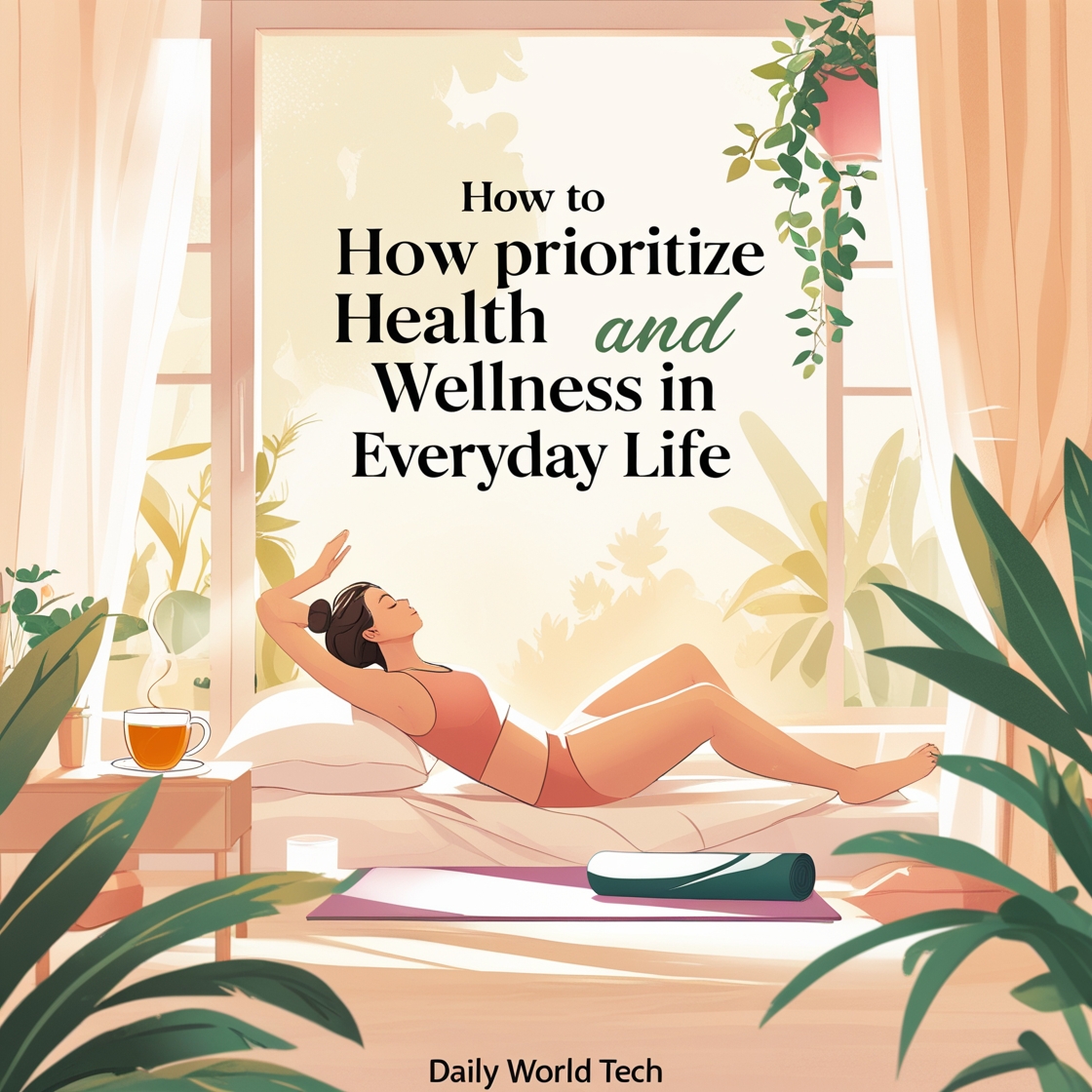
With our current schedules getting busier, health has become an absolute necessity in the current time. Since there is now increased pressure and demands of modern life, good physical, mental and emotional healths now becomes a necessity and not just an option. Sickness is just an absence, a more comprehensive concept of healths in turn entails leading a state of wellness that permits rich and full life. You will learn about various aspects of healths, find out how to use practical ways to improve your quality of life, and get some advice on how to keep a healthy routine.
1. Understanding Health: More Than Just Physical Fitness

Most people tend to see it in its closest form, exercise routines or the absence of medical problems. the reaction.
- Physical Health: The efficiency of how well your body accomplishes its biological task.
- Mental Health: How you feel, think and relate to others.
- Social Health: The ability to enjoy positive meaningful relationships with the people in your life.
- Spiritual Health: A sense of connection with what is greater than you and the presence of awareness of your purpose in life.
- Environmental Health: The balance in your relationship with your environment.
This oneness gives a sense of an overall balanced and integrated feeling of wellness.
2. Physical Health: Building a Strong Foundation
A. Nutrition
Getting in shape begins with eating a well-balanced diet. Focus on:
- Whole grains
- Fresh fruits and vegetables
- Fish, chicken and legumes proteins are good for general healths.
- Consume healthy fats: avocado, olive oil and nuts.
Reduce your intake of sugary, processed foods, and salty foods. Integrating between 8-10 cups of water in your daily activities promotes overall healths.
B. Exercise
The habit of regular physical activity leads to better weight maintenance, improved energy and lower health risks. It is advisable, thus, to incorporate short workouts in your daily schedule: walking, stretching and cycling for half an hour daily would help your physical fitness.
C. Sleep
Don’t underrate the importance of resting. Exercise at least 7 to 9 hours of high-quality sleep to have the best results for your day. Proper restful sleep is very vital for cognition, adjusting to the mood, and cellular wellbeing.
D. Regular Health Checkups
Prevention is better than cure. Sticking to a time-table of regular visitations on previously scheduled dates to a physician, timely vaccination, and continued testing can cause healths issues to be detected in their early stages.
3. Mental and Emotional Health: A Key to Inner Peace
Your mental healths is as important as your physical healths is.
A. Stress Management
Long term stress in people may lead to anxiety, depression, high blood pressure and a higher risk of heart disease. Practice stress-relieving techniques such as:
- Deep breathing
- Meditation
- Journaling
- Listening to calming music
B. Social Connections
Human beings are social creatures. When you are with friends, family members or community members, your capacity to deal with issues improves.
C. Seek Professional Help
You are always entitled to ask for help whenever you have to do so. Speaking with a psychologist or counselor usually results in positive changes especially in one experiencing distress on account of trauma, grief, anxiety or depression.
4. Lifestyle Choices: Your Daily Habits Matter
Your lifestyle choices you make daily will influence your overall health.
A. Quit Smoking
Cigarette smoking is tightly associated with an increased risk of heart disease, cancer, as well as issues on the healths of the lungs. Discuss with healthcare professional or an addiction specialist about quitting smoking.
B. Limit Alcohol
Alcohol consumption that is on the moderate side might not be a cause for worry, but habitual and excessive consumption of alcohol can threaten your liver, your brain and your many other critical parts of your body.
C. Limit Screen Time
Sleep disturbances, eye strain, and mental weariness are some of the side effects individuals may suffer if they spend a lot of time staring at screens – be it on TV, a phone or computer. Create boundaries in regard to your device use.
5. Environmental Health: Clean Living Spaces
The environment you live in has the potential of causing many healths issues. Ensure:
- Clean drinking water
- Proper waste disposal
- Adequate ventilation in order to maintain fresh inside air.
- Reduced exposure to noise and pollution within your surroundings.
Neat and clean-living environments may greatly affect the state of your mind.
6. Preventive Health: Staying Ahead of Illness
- Wash your hands regularly.
- Practice good hygiene.
- Get vaccinated.
- Find out what the most common sicknesses of your locality are, and how they might be prevented.
7. Spiritual Health: Finding Meaning in Life
The fact that you have spiritual healths does not mean you have to subscribe to a particular religion. The values of purpose, hope, peace and values come into play when considering spiritual well-being. Spiritual prayer, meditation, or exposure to nature can help your spirituality too.
8. How to Maintain Good Health Habits
- Set small, achievable healths goals.
- Prepare healthy meals in advance.
- Launch notifications to remind of exercising, taking water and enough sleep.
- Celebrate your progress—every step counts!
Conclusion: Health is Wealth
Good healths is everyday decision, not a once-in-a-lifetime accomplishment. You must be dedicated, disciplined, and tender to yourself if you are to succeed. By shaping up your body, mind and spirit, you will live your life better than money and career will ever let you.
Start today. Make small changes. Eventually, you will thank yourself for doing this.














